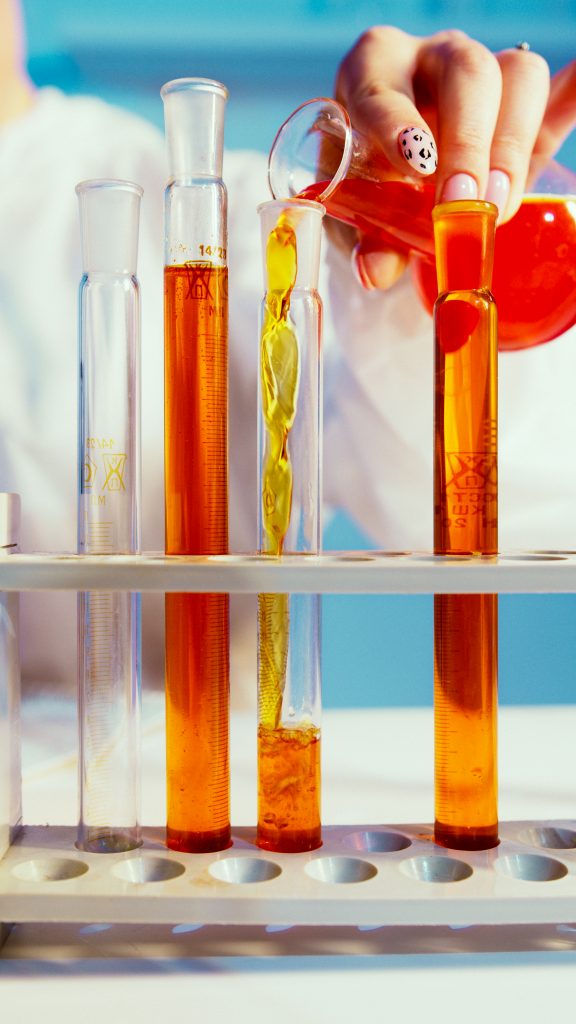Hey there! So, you’ve been pondering about the concept of paternity tests, right? Well, you’ve come to the right place! In this article, we’re going to give you all the juicy details you need to know about paternity tests. We’ll address common legal concerns head-on, offer reassurance and guidance on this delicate topic, and even help you create an emotional connection to better understand the importance of this test. So, are you ready to dive into the world of paternity tests? Stay tuned!

Understanding Paternity Tests
What is a paternity test?
A paternity test is a scientific procedure used to determine the biological relationship between a child and an alleged father. It provides conclusive evidence regarding paternity by examining specific genetic markers present in the DNA of both individuals. This test can offer clarity in situations where there is doubt or uncertainty about a child’s biological father.
How does a paternity test work?
Paternity tests rely on the unique DNA of every individual. The test compares the genetic markers of the alleged father and child to identify similarities and differences. It is most commonly performed using a simple cheek swab to collect DNA samples from both parties. These samples are then sent to a laboratory for analysis. The lab technicians examine the DNA, focusing on specific genetic markers called short tandem repeats (STRs), which are known to be inherited. By comparing the patterns of STRs in the child’s and alleged father’s DNA, the likelihood of paternity can be determined with a high degree of accuracy.
Types of paternity tests
There are two primary types of paternity tests available: non-legal and legal tests. Non-legal tests are conducted for personal knowledge and curiosity purposes and are not admissible in court. They provide accurate results, but they lack the legal documentation required for official use. On the other hand, legal paternity tests are conducted following strict legal protocols. These tests typically involve the collection of DNA samples at an accredited testing facility, and the results can be used as evidence in a court of law. Legal paternity tests provide a legally recognized proof of paternity and can be used to establish rights and responsibilities.
When and Why are Paternity Tests Needed?
Reasons to consider a paternity test
Paternity tests are necessary in various situations which include: confirming biological parenthood, resolving custody and visitation disputes, determining child support obligations, ensuring inheritance rights, and allowing adoptees to trace their biological roots. If there is any doubt about biological fatherhood, a paternity test can remove uncertainty and provide a clear answer. It is important to note that these tests should be undertaken with care and sensitivity, taking into consideration the emotional implications they may have on all parties involved.
Legal aspects of paternity tests
The legal implications of paternity tests are significant, particularly in matters related to child custody, support, and inheritance. Legal paternity tests hold weight in family court proceedings, allowing for the establishment of parental rights and responsibilities. Having a legally recognized paternity test can help protect the child’s best interests and provide a foundation for legal arrangements, such as child support and visitation schedules.
Common concerns about paternity testing
Many individuals have concerns about the confidentiality and accuracy of paternity tests. It is understandable to worry about sensitive information regarding paternity being disclosed. However, reputable testing facilities adhere to strict privacy measures and ensure the confidentiality of test results. In terms of accuracy, modern paternity tests are highly reliable, with accuracy rates exceeding 99%. It is crucial to choose a reputable testing facility that follows standardized procedures to obtain accurate and dependable results.
Getting a Paternity Test
Choosing a reputable testing facility
When deciding to undergo a paternity test, it is essential to select a reputable testing facility. Look for facilities accredited by recognized organizations, as this guarantees adherence to stringent quality standards. It is advisable to research customer reviews and testimonials to ensure the facility has a good reputation for accuracy and professionalism. Consulting with a paternity attorney, who has experience in this area, can also provide valuable recommendations for reputable testing facilities.
The testing process
The process of getting a paternity test is straightforward and non-invasive. Once you have chosen a reputable testing facility, you will need to schedule an appointment. At the facility, a trained professional will collect DNA samples using a simple cheek swab. The samples are painlessly obtained by rubbing a cotton swab on the inside of the cheek. The samples are then sent to a laboratory for analysis, and the results are typically available within a few days to a couple of weeks, depending on the testing facility.
Costs and insurance coverage
The cost of a paternity test can vary depending on the type of test and the chosen testing facility. Non-legal tests are generally more affordable compared to legal tests, as they do not require the same level of documentation and court-admissible results. It is important to check with your insurance provider to see if paternity testing is covered under your policy. In some cases, insurance may cover a portion or the entire cost of the test. Additionally, some testing facilities offer payment plans and financial assistance options to help individuals with limited financial resources access testing services.
Interpreting the Results
Understanding DNA test results
Paternity test results are presented in the form of a probability or percentage. The results indicate the likelihood of the alleged father being the biological father based on the tested genetic markers. A probability of 0% means that the tested individual is not the biological father, while a probability of 99% or higher indicates that the tested individual is highly likely to be the biological father. It is crucial to understand that a paternity test cannot definitively prove or disprove paternity; it can only provide a highly accurate estimation of likelihood.
Accuracy of paternity tests
Modern paternity tests are highly accurate when performed by a reputable testing facility. The accuracy rate is typically 99% or higher, providing a reliable indication of biological paternity. However, it is important to bear in mind that no test is 100% foolproof. Factors such as a laboratory error or a rare mutation in the genetic markers tested can result in a false-positive or false-negative result. Reputable testing facilities take precautions to minimize the possibility of errors and ensure the reliability of the results.
Legal implications of the test results
In legal proceedings, the results of a paternity test carry significant weight. A positive result can establish legal paternity, enabling the alleged father to assert parental rights and responsibilities. This can include custody, visitation, and child support obligations. Conversely, a negative result can absolve an individual from parental obligations. Paternity test results can provide clarity and help resolve legal disputes and issues related to child custody, support, and inheritance.
Emotional and Legal Considerations
Impact on family dynamics
Paternity testing can have far-reaching effects on family dynamics and relationships. It is important to approach the test with sensitivity and consider the potential emotional impact on all parties involved. The revelation of paternity results, whether confirming or refuting biological fatherhood, can have significant emotional consequences. It is essential to provide support and understanding during this process, particularly for the child whose sense of identity may be affected. Seeking counseling or therapy resources can help navigate the emotional challenges and support healthy family dynamics.
Establishing paternity rights and responsibilities
Establishing paternity rights and responsibilities is a crucial aspect of the paternity testing process. Legal paternity tests can provide the necessary evidence to assert parental rights, such as custody, visitation, and decision-making authority. They also establish the obligation to provide financial support for the child. These legal rights and responsibilities are vital for the child’s wellbeing, ensuring a stable and supportive environment as they grow and develop.
Seeking legal advice
Given the complex legal implications of paternity tests, consulting a paternity attorney is highly advisable. A knowledgeable attorney specializing in family law and paternity cases can provide guidance and legal advice specific to your situation. They can explain your rights and responsibilities, navigate the legal process, and represent your interests in court, if necessary. A paternity attorney can offer reassurance, answer questions, and help you make informed decisions based on the unique circumstances surrounding your case.
The Role of a Paternity Attorney
Why consult a paternity attorney?
Consulting a paternity attorney is essential to ensure that your rights and interests are protected throughout the paternity testing process. They have the expertise and experience to guide you through the legal aspects of determining paternity, including navigating any potential challenges or disputes that may arise. A paternity attorney can provide invaluable advice, negotiate on your behalf, and represent your best interests in court proceedings if needed. Their knowledge of family law and paternity cases ensures that you receive the guidance necessary to make informed decisions for yourself and your child.
Services provided by paternity attorneys
Paternity attorneys offer a range of services to their clients. They can assess the specifics of your case, explain your legal rights and options, and answer any questions or concerns you may have. They can guide you through the legal process, including filing any necessary paperwork, representing you in court, and negotiating settlements. Paternity attorneys can also provide ongoing legal counsel, ensuring your rights and interests are protected as circumstances change over time.
How to find a reliable attorney
Finding a reliable paternity attorney may seem overwhelming, but there are several resources available to help. Start by seeking recommendations from trusted friends, family members, or professionals who have experience with family law matters. You can also research online directories that specialize in connecting individuals with reputable attorneys in their area. When considering potential attorneys, schedule consultations to discuss your case and evaluate their knowledge, experience, and communication style. Ultimately, choose an attorney with whom you feel comfortable, confident, and who demonstrates a genuine interest in achieving the best outcome for you and your child.

Common Myths and Misconceptions
Mistaken beliefs about paternity testing
Paternity testing is often subject to various myths and misconceptions that can lead to confusion and misunderstandings. One common misconception is that paternity tests are invasive or harmful to individuals being tested. In reality, paternity tests are non-invasive and painless, typically involving a simple cheek swab. Another myth is that paternity tests are costly and unaffordable. While the cost varies depending on the type of test and the chosen facility, there are options available to fit various budgets. It is important to separate fact from fiction and seek accurate information from reputable sources when considering paternity testing.
Debunking common myths
It is essential to debunk common myths surrounding paternity testing to provide accurate information to those seeking clarity and understanding. Paternity tests are safe and non-invasive, posing no harm to anyone involved. They are also affordable, with options available to accommodate different financial situations. Additionally, the accuracy rates of modern paternity tests are extremely high, providing reliable results in the majority of cases. By dispelling these myths, individuals can make informed decisions based on accurate information, ensuring the best possible outcome for all parties involved.
Educating the public about the truth
To ensure that individuals have accurate information about paternity testing, it is crucial to educate the public about the truth. This can be achieved through various channels, such as educational campaigns, online resources, and community outreach programs. By providing clear, factual information about the process, accuracy, and legal implications of paternity tests, individuals can make informed decisions based on accurate knowledge. Educating the public about the truth surrounding paternity testing promotes understanding, supports healthy relationships, and provides individuals with the confidence to seek the answers they need.
Alternative Options
Non-invasive prenatal paternity testing
In certain situations, traditional paternity tests may not be feasible or appropriate, such as during pregnancy. In such cases, non-invasive prenatal paternity testing is an alternative option. This type of test uses a blood sample from the pregnant mother to analyze cell-free DNA, which includes genetic information from both the mother and the fetus. By comparing the genetic markers of the fetus and the alleged father, the likelihood of paternity can be determined. Non-invasive prenatal paternity testing eliminates the need for invasive procedures, preserving the health and well-being of the mother and the unborn child.
At-home paternity tests
At-home paternity tests offer a convenient and private option for those seeking answers about biological fatherhood. These tests typically involve ordering a testing kit online, collecting the DNA samples at home using cheek swabs, and sending the samples to a laboratory for analysis. While at-home tests may provide accurate results, it is important to note that they are not legally admissible and lack the necessary documentation for official use. They are primarily intended for personal knowledge and curiosity purposes. If legal proof of paternity is required, consulting with a reputable testing facility and a paternity attorney is advisable.
The pros and cons of alternative options
Non-invasive prenatal paternity testing and at-home paternity tests both offer alternative options for those seeking to determine paternity. Non-invasive prenatal testing provides a safe and non-invasive method for determining paternity during pregnancy, but it can be more expensive compared to traditional testing methods. At-home paternity tests offer convenience and privacy, but they lack the legal standing required for official use. It is important to carefully consider the pros and cons of alternative options and choose the method that best suits your specific needs and circumstances.

Privacy and Confidentiality
Protecting sensitive information
Privacy and confidentiality are of utmost importance when it comes to paternity testing. Reputable testing facilities take stringent measures to ensure the protection of sensitive information. They employ secure systems for storing and transmitting data, and they adhere to strict privacy policies and legal regulations. It is important to choose a testing facility that prioritizes confidentiality and follows established protocols to safeguard your personal information.
Legal regulations and confidentiality
Paternity testing facilities must comply with legal regulations regarding privacy and confidentiality. These regulations vary by jurisdiction but typically require testing facilities to obtain consent from individuals being tested and to store and handle personal information securely. Regulations often dictate that test results are only released to authorized individuals and protected from unauthorized access. It is crucial to choose a testing facility that is fully compliant with the applicable legal regulations to ensure the utmost privacy and confidentiality.
Choosing a trusted testing facility
To ensure the privacy and confidentiality of your personal information, it is essential to choose a trusted testing facility. Look for testing facilities that have a proven track record of protecting sensitive information and safeguarding against breaches. Accredited facilities generally adhere to strict privacy protocols and standards. Research customer reviews and testimonials to gain insights into the reputation of a testing facility. Additionally, consulting with a paternity attorney can provide valuable guidance and recommendations for trusted testing facilities in your area.
Conclusion
Taking the next step
If you find yourself in a situation where paternity is in question, understanding the process and implications of paternity testing is essential. Take the next step towards clarity and certainty by consulting a reputable paternity attorney and choosing a trusted testing facility. Their expertise and guidance can navigate the legal and emotional aspects involved, ensuring that your rights and best interests, as well as those of the child, are protected.
Empowering individuals through paternity testing
Paternity testing has the power to empower individuals by providing answers, establishing legal rights and responsibilities, and fostering healthy family dynamics. By seeking the truth through paternity testing, individuals can make informed decisions about the future and gain a sense of certainty in their relationships. It is essential to approach the process with sensitivity, empathy, and the support of professionals who can provide guidance and legal expertise.
Seeking legal assistance promptly
If you have concerns or questions about paternity, seeking legal assistance promptly is highly advisable. A paternity attorney can help you understand your rights, navigate legal processes, and ensure that your interests are protected in matters related to paternity testing. Don’t hesitate to take the necessary steps to seek clarity and resolution, as timely action can lead to better outcomes for all involved parties. Call a trusted paternity attorney today to schedule a consultation and begin the journey towards resolution and peace of mind.